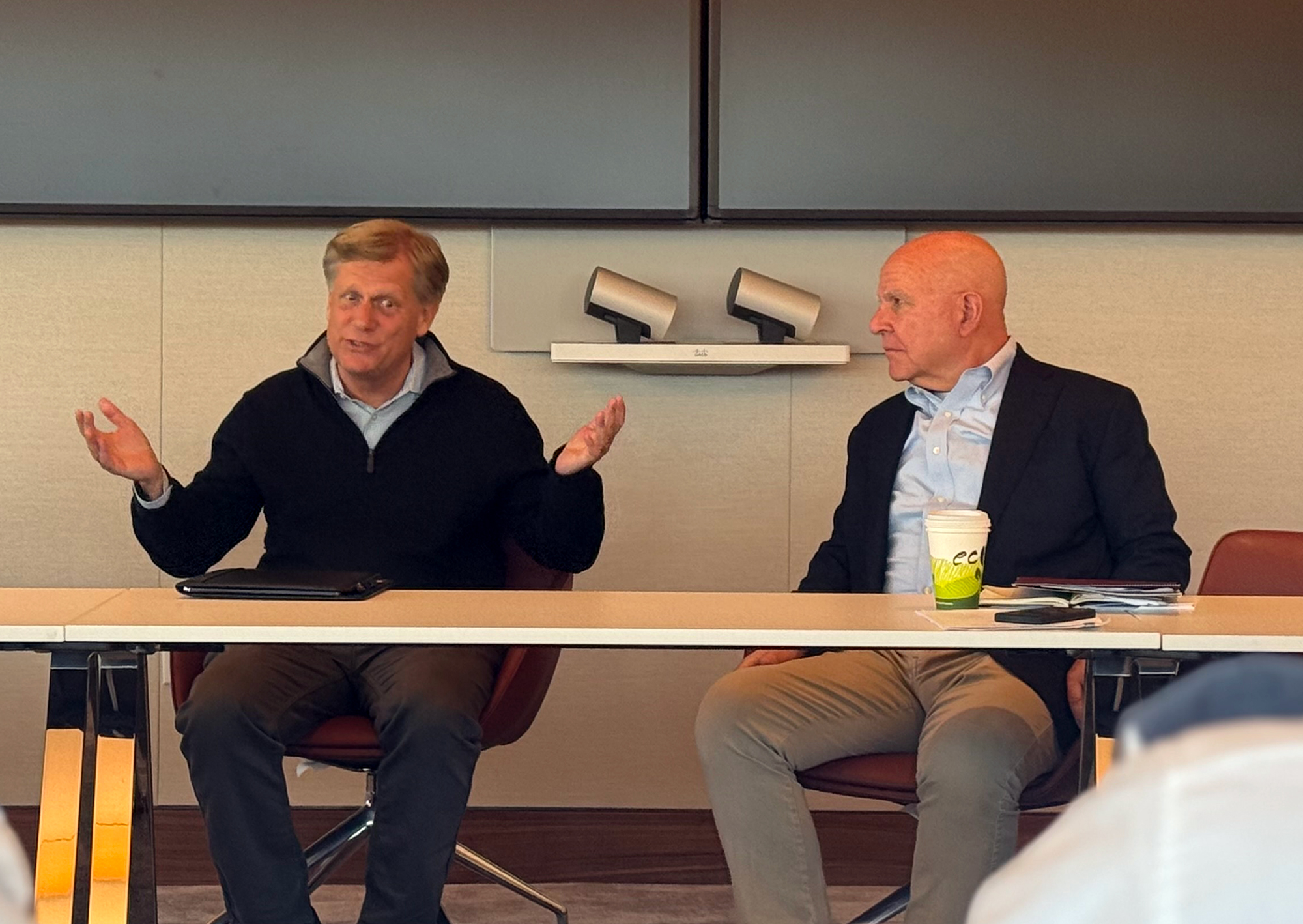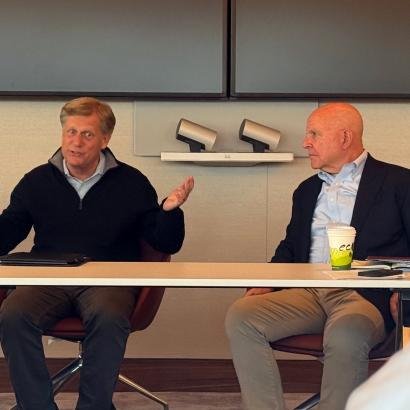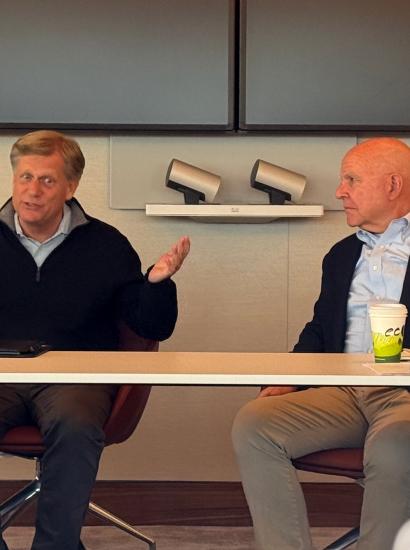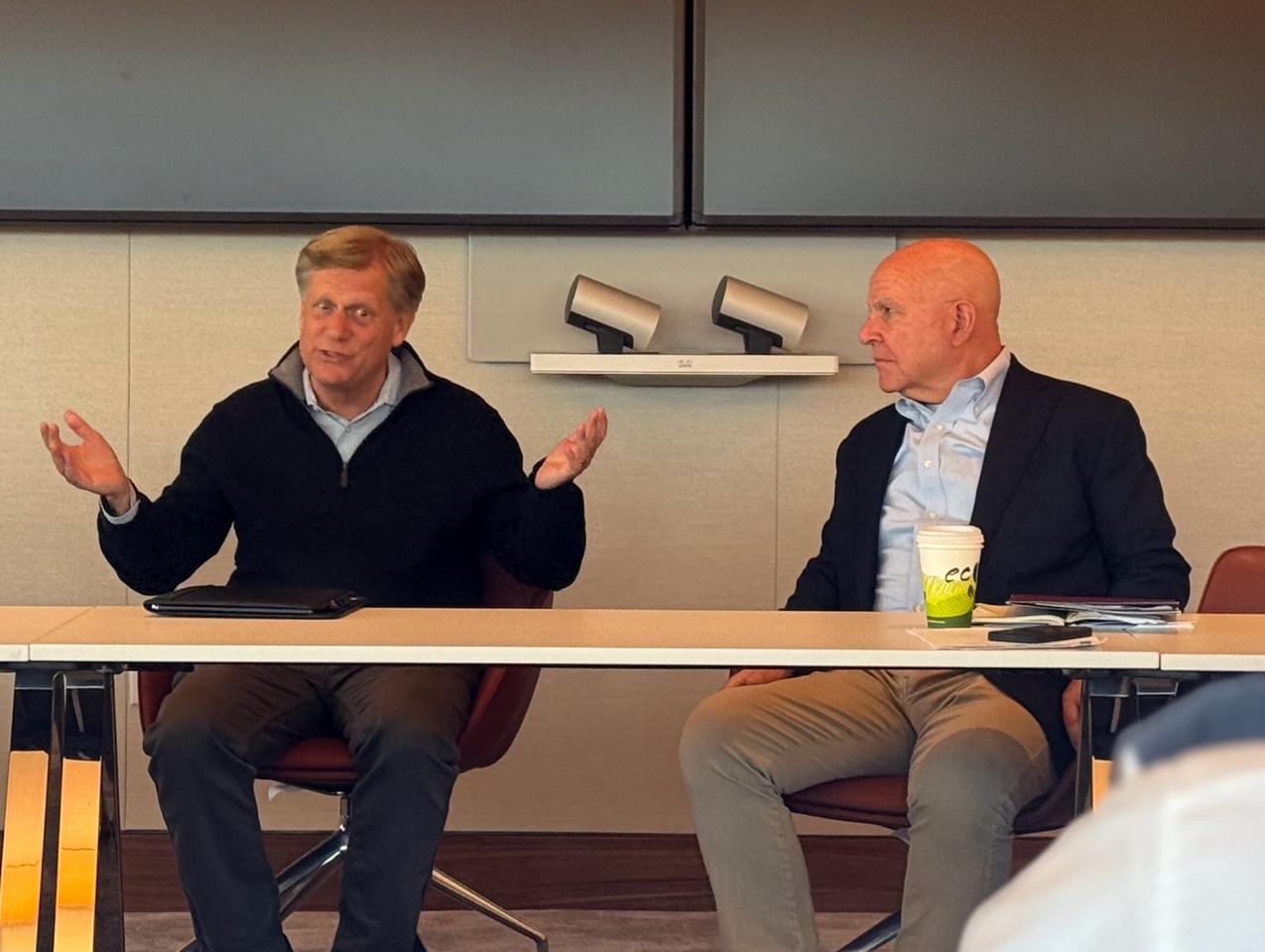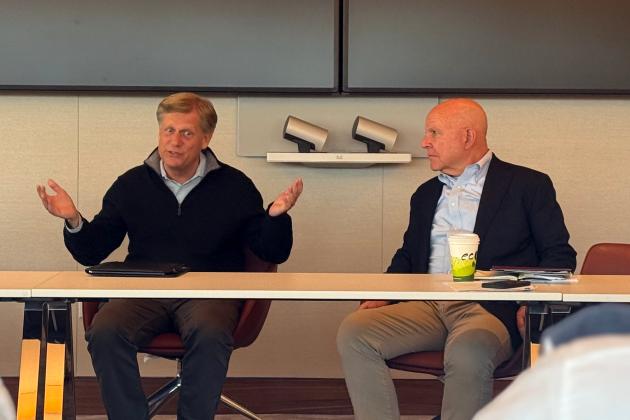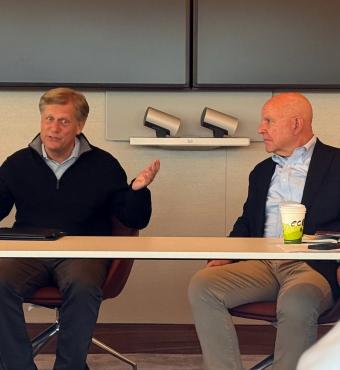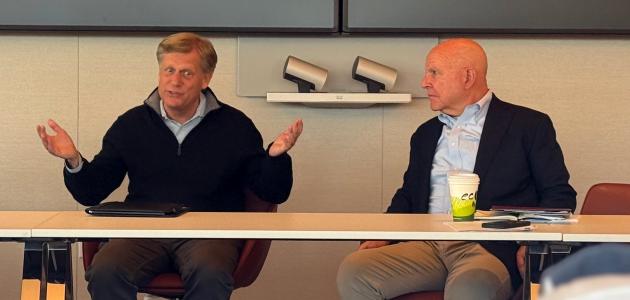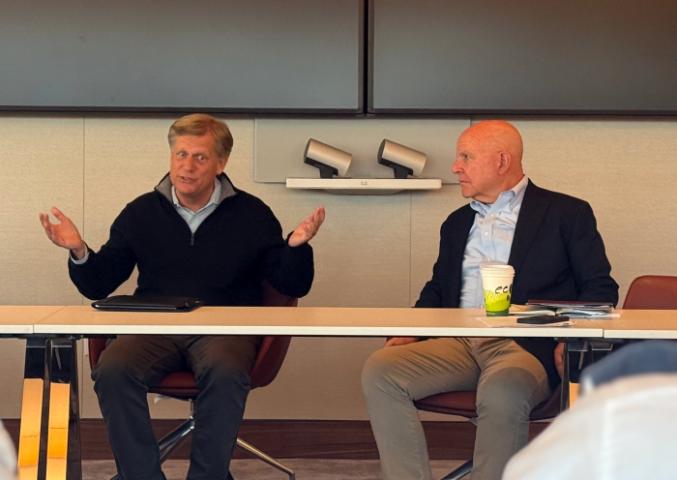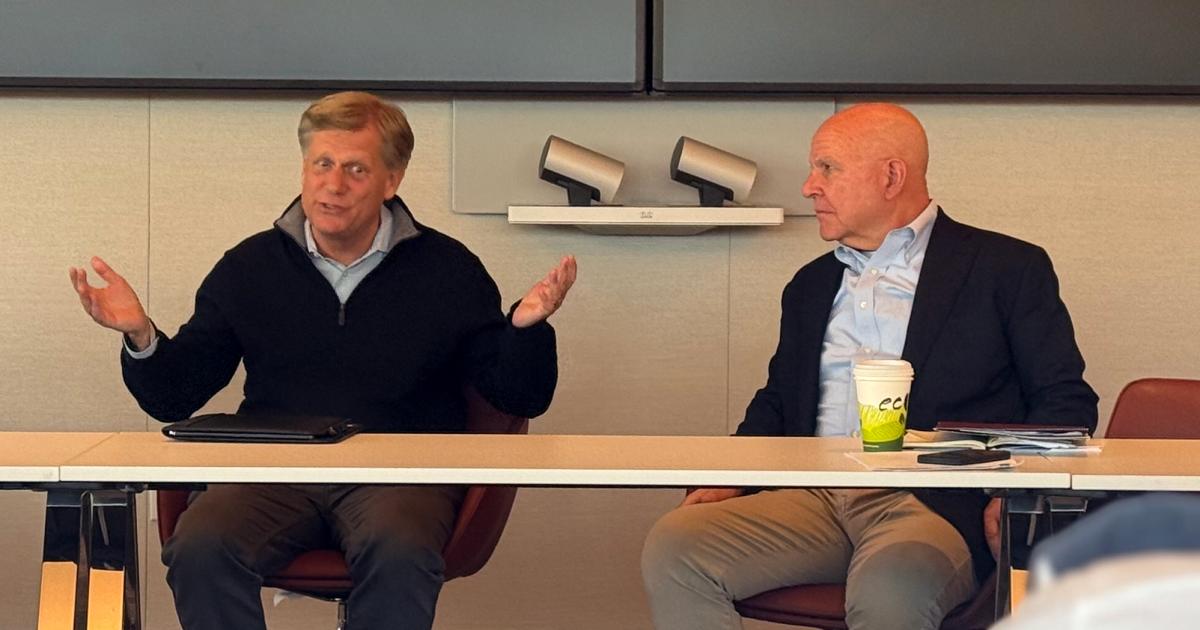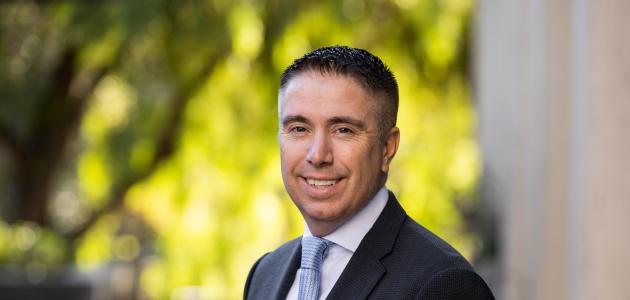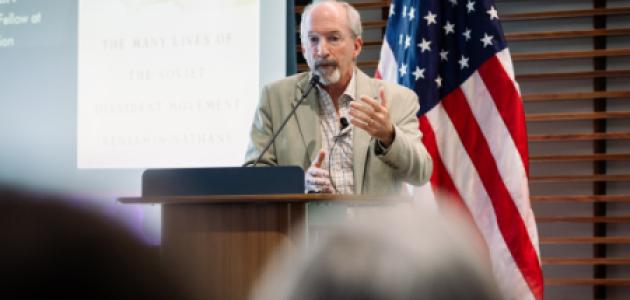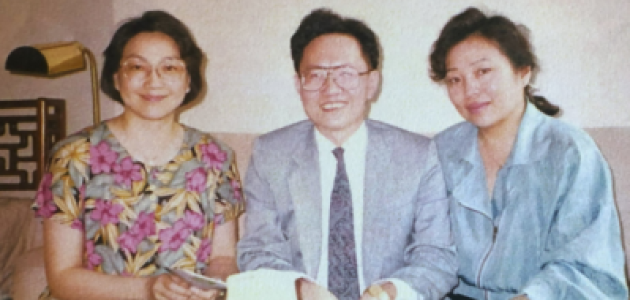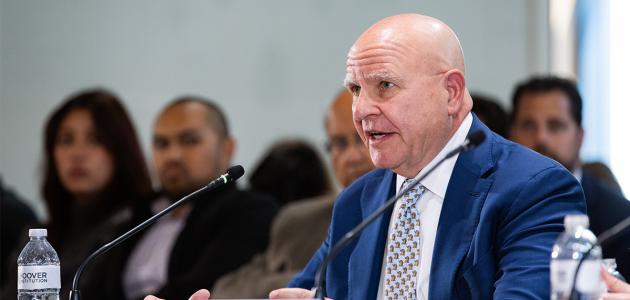Hoover Institution (Stanford, CA) — A delegation of United States Military Academy cadets from West Point’s Black and Gold Leadership Forum visited Hoover on April 22 for a compelling series of discussions about geopolitics, national security, technology, and leadership.
This marked the forum's inaugural visit to the West Coast and provided West Point cadets, who will all commission as US Army officers after graduation, with an exceptional opportunity to engage directly with renowned experts in the fields of international security, diplomacy, technology, and national power. The event aimed to broaden the cadets' perspectives by exposing them to diverse viewpoints from Hoover Institution scholars.
The forum included presentations and discussions covering crucial topics such as the state of transatlantic security relations, the importance of keeping the military out of partisan politics, diplomacy and US-Russia relations, and enhancing US technological capabilities to compete globally, especially with China.
The gathering was organized in part by Senior Fellow H.R. McMaster and his Building Strategic Competence research program at Hoover.
“It was a pleasure to engage with the talented and dedicated cadets who visited Stanford and Silicon Valley as part of the Black and Gold Leadership Forum,” McMaster said of the gathering. “These are young men and women who have chosen to serve and defend our nation. West Point does a fantastic job at exposing them to a broad range of perspectives relevant to national security and their future responsibilities as army officers.”
The Black and Gold Leadership Forum is a cadet-led organization within West Point Military Academy that enables its members to learn from leaders in industry, government, and nonprofit organizations about the keys to effective leadership and how they can be applied to the US Army.
In his talk with the cadets, McMaster urged them to always focus on their mission, and he drew a parallel between what is required of someone engaged in armed combat and the stoicism needed to prevail in a politically charged environment.
Speaking about the future of transatlantic relations, Senior Fellow Stephen Kotkin expressed optimism to the cadets that the NATO alliance, although changed, will endure in years to come. He emphasized the need for the cadets to know history to understand current events and trends in context.
Senior Fellow Michael McFaul spoke of his time serving as US ambassador to Russia from 2012 to 2014. He stressed the importance of US support for Ukraine and the understanding that the preservation of Ukrainian sovereignty aligns with America’s long-term strategic interests.
On technology, senior fellow and Stanford Emerging Technology Review cochair Amy Zegart imparted what she characterizes as three power shifts occurring with global dynamics today. First, that China’s rise is impacting power dynamics within all other countries. Second, that the capacities of most national governments are falling as the capabilities of their private sectors continue to rise. And third, that the sources of national power are shifting from hard demonstrable factors such as the size of a nation’s standing military to intangible factors such as human capital and the nation’s access to computing power.
Building on Zegart’s talks about China, distinguished research fellow and US, China, and the World Program cochair Glenn Tiffert spoke to the cadets about the threat of China’s rising capabilities and economic might to US vital interests. He underscored that for the United States to maintain its global leadership and competitive edge, it must reinvest and refocus its efforts on scientific and technological research, development, and innovation.
Lieutenant Colonel Andrea Kaman, the director of the West Point Leadership Center, who led the cadets’ visit, reflected, “The Black and Gold Leadership Forum's engagement with Hoover Institution scholars was invaluable. The conversations with LTG (Ret.) McMaster and other distinguished fellows provided our cadets with critical insights into modern warfighting challenges. These experiences help develop the decisive leadership mindset our future officers need to make sound decisions and maintain America's competitive edge—ultimately preparing them to win our nation's wars.”
For coverage opportunities, contact Jeffrey Marschner, 202-760-3187, jmarsch@stanford.edu.







